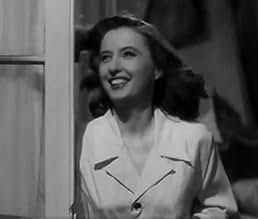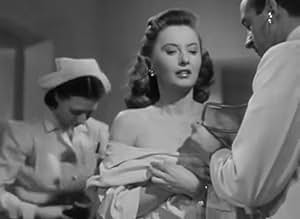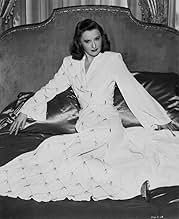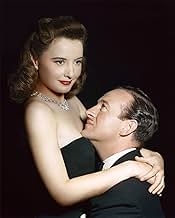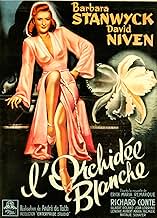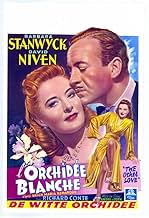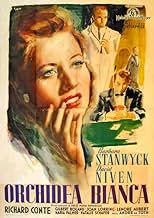Füge eine Handlung in deiner Sprache hinzuKaren Duncan, a seriously ill concert pianist, enters a Swiss sanatorium where she's attracted to Dr. Tony Stanton. Ignoring his warnings about resting, she leaves for Monte Carlo with Paul ... Alles lesenKaren Duncan, a seriously ill concert pianist, enters a Swiss sanatorium where she's attracted to Dr. Tony Stanton. Ignoring his warnings about resting, she leaves for Monte Carlo with Paul Clermont despite possibly fatal consequences.Karen Duncan, a seriously ill concert pianist, enters a Swiss sanatorium where she's attracted to Dr. Tony Stanton. Ignoring his warnings about resting, she leaves for Monte Carlo with Paul Clermont despite possibly fatal consequences.
- Regie
- Drehbuch
- Hauptbesetzung
- Restaurant Patron
- (Nicht genannt)
- Casino Patron
- (Nicht genannt)
- Casino Patron
- (Nicht genannt)
- Roulette Player
- (Nicht genannt)
- Casino Patron
- (Nicht genannt)
- The Florist
- (Nicht genannt)
- Townsman
- (Nicht genannt)
- Woman
- (Nicht genannt)
Empfohlene Bewertungen
Classical pianists and exclusive doctors were common themes in 1940s Hollywood but somehow in this film they don't jell. Academy Award winner (A Double Life), Miklos Rozsa's music score comes across well as a piece of heavy classical piano. Barbara Stanwyck displays a seldom seen ability as a pianist making it look very authentic. Niven by comparison is shown at the keyboard only once in an out of focus long shot and is obviously bluffing his way through. As for his doctor part, it is evident that he never seems happy in it. It is a rôle which Claude Rains had excelled at previously in "Now Voyager", here he could have played it to perfection so lifting the film out of its mediocrity. It's left to Stanwyck to carry the film.
Not one to rush to watch but interesting as a period piece and a chance to see two great stars of their time.
But Three Comrades had Frank Borzage directing it and that was the man for these films. His touch on bittersweet romances is as apparent and obvious as Alfred Hitchcock with suspense. This film would have raised a few notches in ratings had he directed it. And of course Sullavan would have aced the part of the tubercular heroine.
As it is Stanwyck is not bad in the role of a patient of Dr. David Niven at a Swiss sanitarium for tuberculosis. Niven is having a lot of trouble keeping his professional decorum with Stanwyck, but the doctor does win over the potential lover. Stanwyck doesn't realize how sick she is just as Sullavan didn't realize it in Three Comrades. She's a classical concert pianist and the enforced rest is rusting her technique.
The first chance she gets she runs off with racing driver Richard Conte who she doesn't tell how sick she is. But in the end Conte proves to be a stand-up guy.
There is also a very touching performance from Joan Lorring as a singer who is also a patient in the sanitarium. Her death just about pushes Stanwyck over the edge.
Barbara and the cast acquit themselves well, but Frank Borzage could have made The Other Love a classic.
Barbara Stanwyck gives an excellent performance in this overlooked film. She usually portrays very strong, independent characters, so whenever she breaks down and cries or begs for help, it's truly heartbreaking. Get ready to be heartbroken more than once during this film. I like Barbara anyway, but I was particularly impressed by her range of emotions: fear, anger, resentment, love, relief, hope, and determination. Ladislas Fodor and Harry Brown's script wasn't the strongest element in the film, and I could imagine another actress would have either been too flat or too melodramatic. Barbara is very real.
In addition to the medical portion of the film, Barbara is also caught in a love triangle, torn between David Niven and Richard Conte. While I love The Niv, Richard Conte is very magnetic. One man knows her past, and the other could be her future; one keeps up a professional front, and the other is overtly passionate. Which will she choose? Find out by renting this romance on a cold, rainy afternoon.
Of course, dying in so decorous a fashion would take a bite out of anybody's schedule. So our Babs cuts short her international concert tour, and checks into a plush clinic with a panoramic view of the Swiss Alps. There she meets David Niven, a handsome doctor who takes a more-than-professional interest in her case. Frankly, I found his fascination with Babs and her illness to be downright ghoulish - and couldn't help wondering if he was a closet necrophiliac.
Realising, perhaps, that Niven is far too lightweight to make a convincing leading man (at one point, I felt they should switch roles!) La Stanwyck runs away to Monte Carlo. There she starts living the high life with a tough, sexy racing driver (Richard Conte). Given the fact that she has only a few weeks left to live, I thought this was eminently sensible behaviour on her part. Ah, but her heart is calling her back to Niven and his Alpine clinic...
The Other Love is spectacularly well-made by unsung director Andre de Toth, and boasts a luscious Tchaikovsky-esquire score by Miklos Rozsa. But it's success is down to Barbara Stanwyck, who lends a much-needed note of toughness and reality to what would otherwise be a pure camp melodrama. Played by anyone else, our heroine would most likely drown in syrup long before succumbing to a weakness of the lungs.
Wusstest du schon
- WissenswertesAlthough it is never stated in the film, Karen Duncan is suffering from tuberculosis (TB). One of the earlier treatments for TB was to place the patient in a healthy environment with continuous fresh air (often in a mountain or desert location), and to ensure that he/ she had a good diet and plenty of rest. This resulted in the establishment of many sanatoriums for TB patients (similar to the one run by Stanton) all over the world, .
- PatzerWhen Stanton gives Karen an X-ray, neither he nor the nurse stand behind any radiation protection. However, in the 1940s, X-rays were not yet considered dangerous, and this technology was widely used. Shoe stores even used X-rays to measure customers' feet through the 1950s.
- Zitate
Paul Clermont: Whither thou goest, so shall I!
Karen Duncan: That would be hard for both of us.
- Crazy CreditsOpening credits prologue: SWITZERLAND
- Alternative VersionenThere is an Italian edition of this film on DVD, distributed by DNA srl, "STELLA DALLAS (Amore sublime, 1937) + ORCHIDEA BIANCA (1947)" (2 Films on a single DVD), re-edited with the contribution of film historian Riccardo Cusin. This version is also available for streaming on some platforms.
- VerbindungenReferenced in Lolita (1997)
- SoundtracksÉtude No. 3, Un sospiro
Music by Franz Liszt
Top-Auswahl
- How long is The Other Love?Powered by Alexa
Details
- Erscheinungsdatum
- Herkunftsland
- Offizielle Standorte
- Sprachen
- Auch bekannt als
- Erich Maria Remarque's The Other Love
- Produktionsfirma
- Weitere beteiligte Unternehmen bei IMDbPro anzeigen
- Laufzeit1 Stunde 35 Minuten
- Farbe
- Seitenverhältnis
- 1.37 : 1
Zu dieser Seite beitragen


